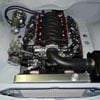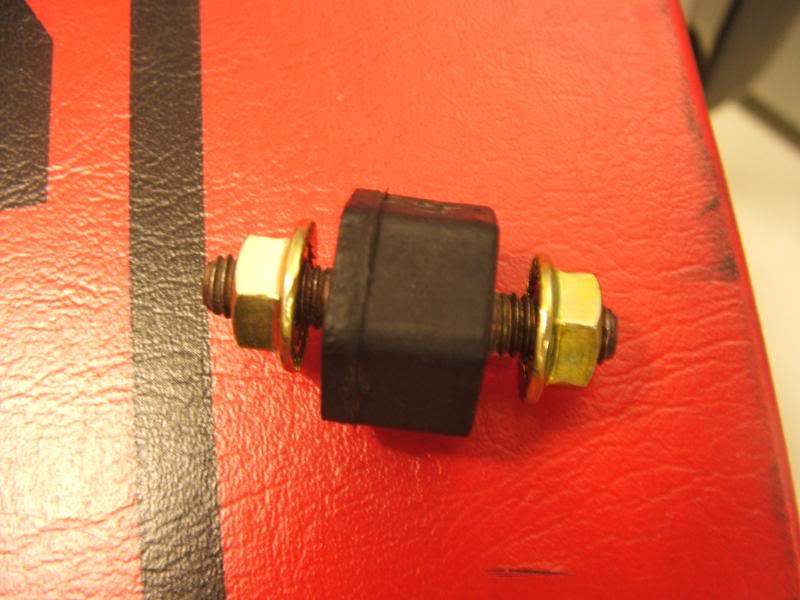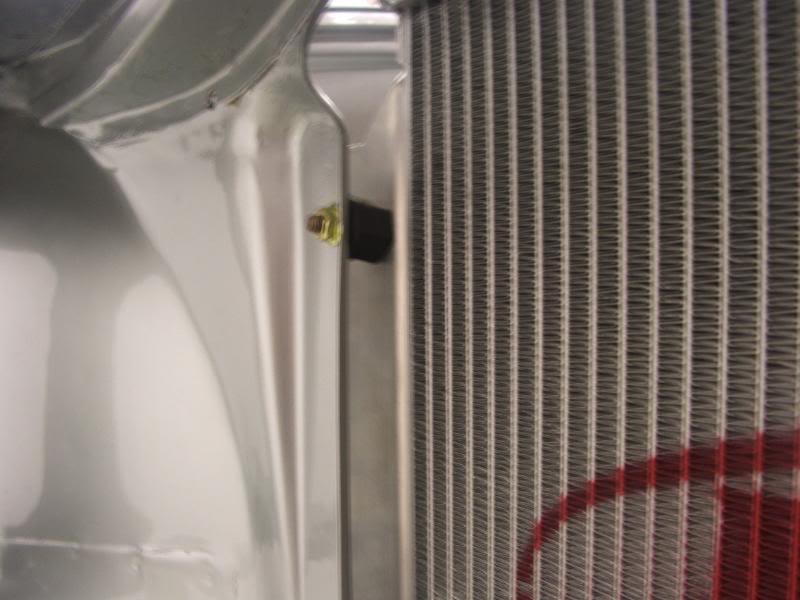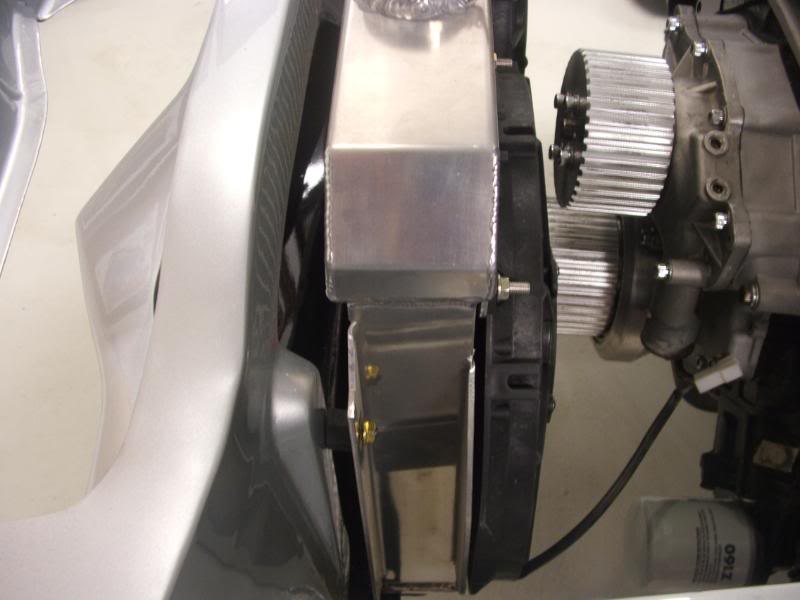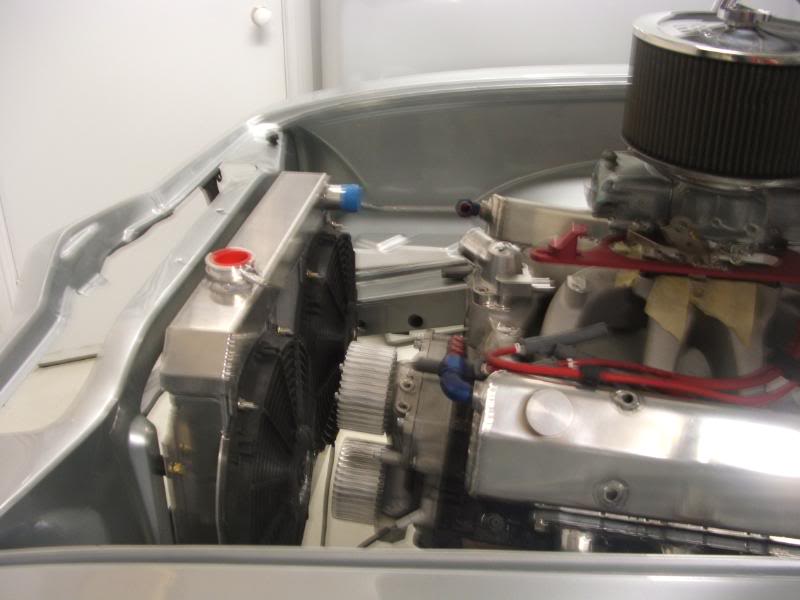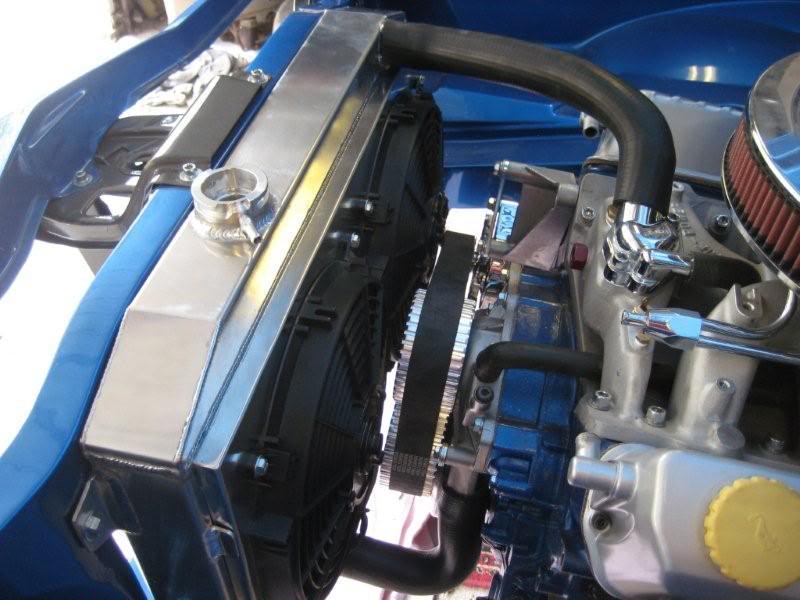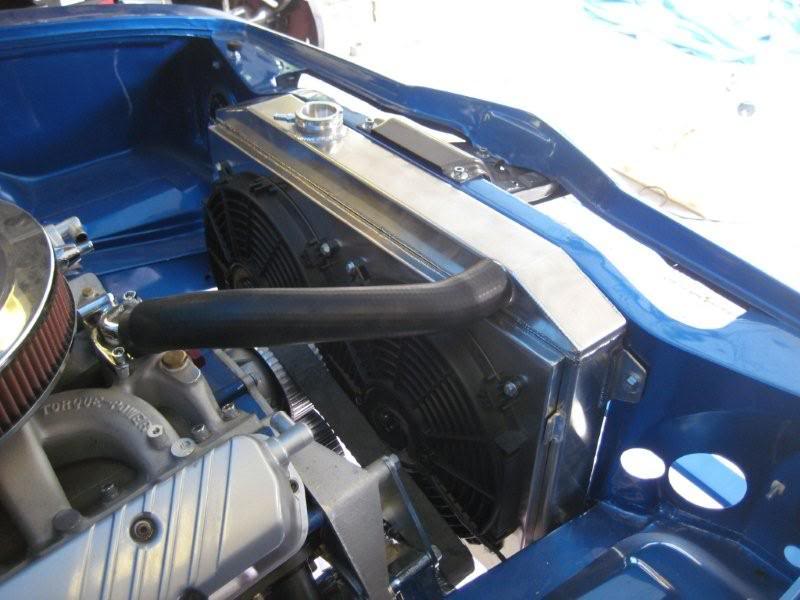From this thread.
http://www.gmh-toran.......rrent&st=27Some tech articles recommend grounding the radiator and others recommend you do not ground the radiator. There seems to be more support for grounding the radiator.
They all agree that you must use appropriate coolant and test for stray current regularly using a multimeter (see Nulon document ) or dedicated device (Koolit Indicator). Apparently brass/copper radiators are also susceptible to stray current corrosion.
Nulon Facts SheetSo, why are we seeing more stray current related radiator failures these days? A good example of how modern radiators are so vulnerable to stray current corrosion is that many of them are attached to the vehicle by their plastic tanks, or are insulated from the vehicle chassis by rubber mounts.
http://www.radiatorr...m/electrol.htmlTake electrolysis, for example. Before the days of front wheel drive and transverse-mounted engines, cooling system electrolysis was a rare occurrence. But today, with most cars and many light-duty trucks featuring electric cooling fans in conjunction with ungrounded plastic-tank radiators, cooling system electrolysis is becoming a frequent problem.
http://www.birdsradi...lectrolysis.nxgEarly on, when electrolysis first cropped up as a problem in cooling systems, many mechanics attempted to solve the problem by grounding the heater or radiator in order to "collect" any stray voltage and route it to battery ground. But mechanics soon discovered that grounding a heat exchanger to "collect" stray current merely accelerated the damage to the heat exchanger.
KOOL-IT� Electrolysis Indicator
Edited by ls2lxhatch, 14 January 2009 - 09:43 AM.





